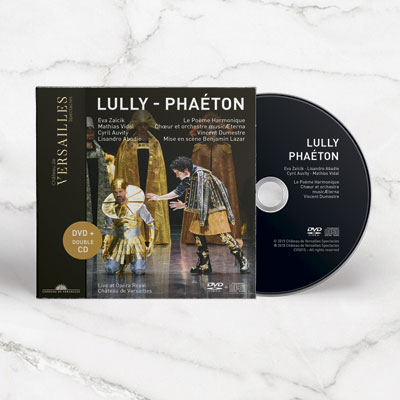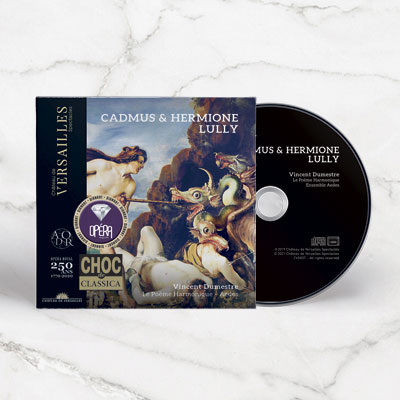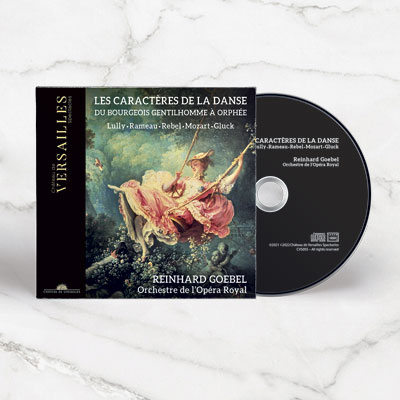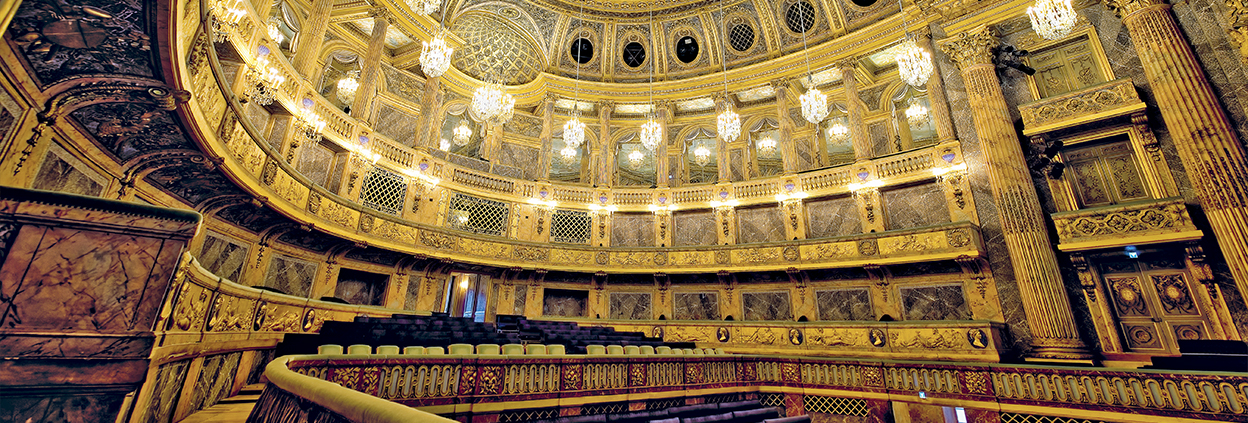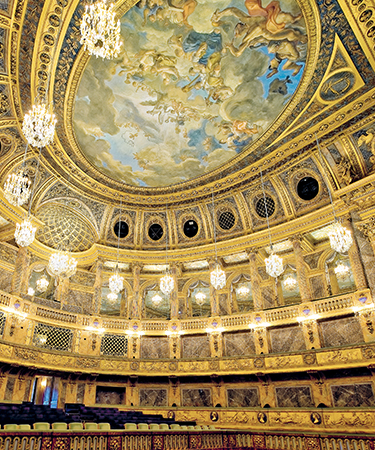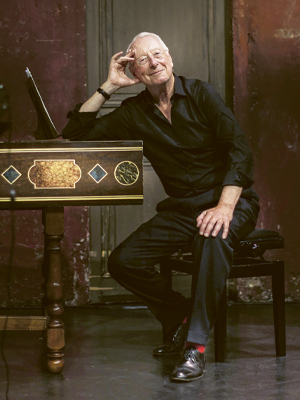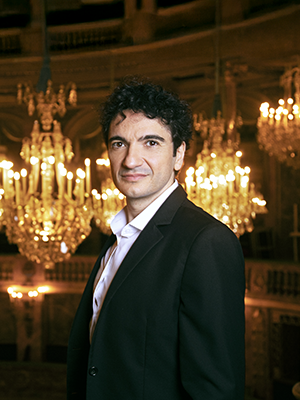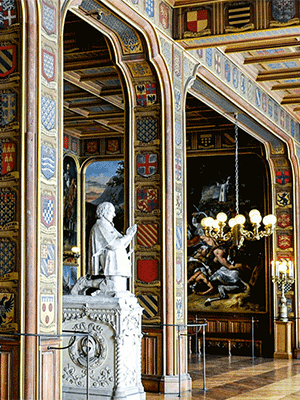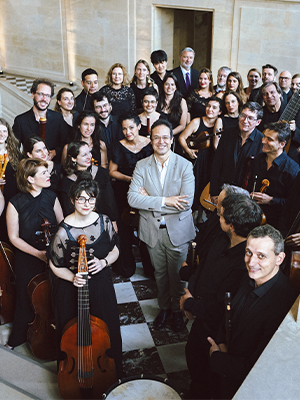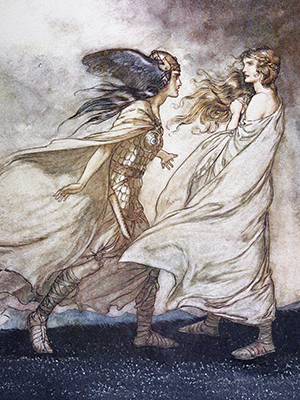Cast
- Ambroisine Bré Arethusa, Peace
- Apolline Raï-Westphal Cyane, Felicity
- Véronique Gens Ceres, Abundance
- Jean-Sébastien Bou Crinise, Discord
- Marie Lys Proserpine, Victory
- Nick Pritchard Mercury
- Laurence Kilsby Alphée
- Olivier Gourdy Pluton
- Olivier Cesarini Ascalaphe
- David Witczak Jupiter
- Thibaut Lenaerts A judge of the underworld, a Fury
- Chœur de Chambre de Namur
- Les Talens Lyriques
- Christophe Rousset Conductor
Presentation
A highly successful work, premièred in 1680 at the Court of Saint-Germain-en-Laye, Proserpine marks the return of the fruitful collaboration between Quinault and Lully, broken by the scandal of Isis in 1677. While the story of Proserpine is inspired by Ovid’s Metamorphoses, the libretto of this lyric tragedy in five acts focuses more on the figure of Ceres, Proserpine’s mother, devastated by the abduction of her daughter by Pluto, god of the underworld, who wishes to marry her. The context of the work’s creation is enlightening, as it coincided with the announcement of the marriage between Marie-Anne of Bavaria and the Grand Dauphin, Louis XIV’s only legitimate son: Proserpine, who must marry a man she has not chosen in order to become Queen of the Underworld where she will finally find love, evokes the story of the future Dauphine of France. The character of Ceres, abandoned by Jupiter, is also reminiscent of the Marquise de Montespan, spurned by Louis XIV for Madame de Ludres.
Show moreWith Proserpine, Lully furthered the development of the genre of lyric tragedy that he himself had founded by exploring a wide variety of vocal and orchestral combinations. No longer content to play the instrumental entertainment framing the action, the orchestra now contributed to the dramatic progression by supporting and responding to the characters and choruses. The duet of Pluto and Ascalaphe, the first bass duet in this repertoire, also attests to innovation within the genre. As such, according to musicologist Jérôme de La Gorce, this work heralded “decisive changes for the future of tragedy”.
For Christophe Rousset and Les Talens Lyriques, performing Proserpine represents a new milestone in their brilliant and acclaimed exploration of Lullist tragedies.
Alice de la Bouillerie.
Coproduction Royal Opera / Château de Versailles Spectacles, Les Talens Lyriques.
This programme will be recorded for the Château de Versailles Spectacles label.
Programme
Musical tragedy with libretto by Philippe Quinault, first performed at Saint-Germain-en-Laye in 1680.
Show in French with French and English surtitles.
And also…
PRESTIGE VIP CATEGORY: Best seats in house, you will receive a complimentary glass of champagne and programme.
PRESTIGE CATEGORY: Excellent seats, you will receive a complimentary glass of champagne and programme.
REDUCED RATE: applicable to under 26s, Chateau de Versailles Spectacles card holders and groups of more than 10 people (excluding special company offer).
GROUP RATES: for more information, please refer to our page dedicated to works councils and groups.
In case of any technical problem, the box office service remains available to complete your order by phone at +33 (0)1 30 83 78 89 (Monday-Friday from 11am to 6pm) or in our box office-shop (3 bis rue des Réservoirs, 78000 Versailles ; Monday-Friday from 11am to 6pm, and on Saturdays with concerts or shows except during the Musical Fountains Shows, from 2pm to 5pm).
To ensure the best welcome possible, people with limited mobility are advised to book their seats by telephone.
YOU MAY ALSO LIKE…


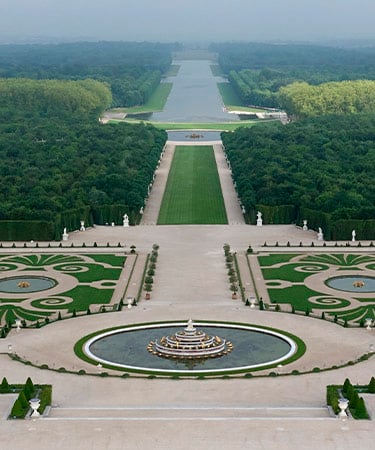






 Francais
Francais
 English
English
 support
support


 Sunday June 15th 2025
Sunday June 15th 2025




